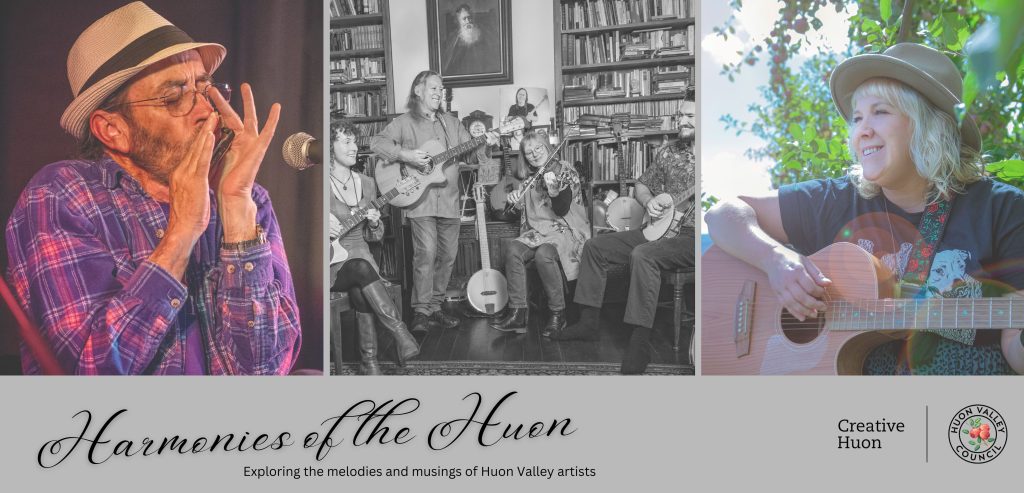David Brannigan
As a 19-year-old in 1965, David Brannigan discovered Frank Traynor’s Jazz and Folk Club in Melbourne. It changed his life.
Frank, a jazz trombonist, had formed his group The Jazz Preachers in 1956, then opened his club in the early 1960s.
‘He was an important figure in the Australian folk revival,’ David says. ‘The club was an outlet for both jazz and folk performers at a time when such venues were scarce in the city.’
Traynor’s club made a huge impression on David, but he was shy about performing. These were the conscription years and to avoid the draft he went to New Zealand, where he was welcomed into the young but growing folk music scene and soon began playing in clubs.
Returning to Australia, he played at Frank Traynor’s, then formed a band called The Colonials and became part of the Australian folk revival of the 1960s.
‘We were young and enthusiastic,’ David recalls. ‘One band member was only 18.’
The Dan O’Connell hotel, a 1884 Gothic building on the corner of Canning and Princes Streets in Carlton, was a centre for folk music and a true Irish pub.
‘Irish immigrants would simply put their address as c/- The Dan O’Connell Hotel, Melbourne Australia,’ David laughs.
David has been in Tasmania for 13 years and lives at Gardners Bay in the Huon Valley.
‘I love live music,’ he says. ‘Folk music is welcoming, it invites people in.’
When I meet David during the Cygnet Folk Festival, he’s playing in a group session workshop with his partner Allison Petersfield. Twenty-five musicians of all levels are grouped around a large table at the Cygnet Bottom Pub.
‘We have learners, talented players and even some semi-professionals,’ David says. ‘It’s a slow tunes sessions, with no set list – just whatever goes,’
The repertoire is familiar traditional jigs and reels. Experienced musicians start a tune and one-by-one, others join in as they get a feel for it. It’s wonderful to watch as every player slowly comes in and starts playing along.
‘Before TV, radio and gramophones, the dance tradition was much stronger than it is today,’ David explains. ‘The popularity of the bush bands has faded, especially in the suburbs. That’s why folk festivals and group sessions are so important.’
Allison Petersfield
Allison Petersfield’s journey into music began when she and her late husband Colin went to a jazz club in Hobart in 1974.
‘Colin was besotted by the tin whistle played by Frank Burns and immediately rushed off to buy one and began learning,’ Allison recalls. ‘Listening to someone practising the tin whistle is just horrible, so I decided either to take long walks forever, divorce him or learn an instrument as well.’
Her grandmother had played in a mandolin orchestra in 1919. When she passed, her instrument was left to Allison.
‘I found a book, learnt a few tunes and went to sessions, then picked up everything by ear,’ Allison says. ‘Colin and I went touring in Ireland and played in lots of trad pub sessions on fiddle and accordion. It was fascinating and fantastic.’
Colin and Allison were good friends with Mick Flanagan, who ran the folk club in Franklin. An icon of the Tasmanian folk scene, Mick had started the George Town festival and had a lot of input into the Longford Folk Festival.
‘We played in a band with Mick,’ Allison says. ‘We visited him to tell him about our adventures in Ireland and he told us he was thinking of starting a festival in Cygnet. Now, more than four decades later, here I am playing the fiddle with my partner David Brannigan in a group session workshop at the long-established and highly-successful Cygnet Folk Festival.’
Allison remembers that the first Cygnet Folk Festival was during school holidays in May, which suited her because she was a teacher. Most of the performances and workshops were in the Town Hall and Carmel Hall.
‘The first festival took up the whole weekend,’ she recalls. ‘It was busy, but nobody had thought about food. Everything closed at 6pm, the pubs didn’t serve any food and the shops were closed. People were wandering around asking, where do we get something to eat? Eventually the Top Pub cooked up a gigantic pot of soup to feed everyone!’
There weren’t many tourists around in 1982 and Allison says that in the early years, the Cygnet locals were less than enthusiastic about the festival.
‘Colin was labelled a hippy because he had a beard!’ she says. ‘The idea for the festival was that the visiting musicians would perform and hold workshops and play at sessions, which would influence the local players. 42 years later the Cygnet Folk Festival has become an iconic Australian musical event.’
‘Harmonies of the Huon: Exploring the melodies and musings of Huon Valley artists‘ is a Creative Huon series in collaboration with Huon Valley Council and Huon Valley Tas, showcasing the Huon Valley’s musical talents, their inspiration and journeys.

